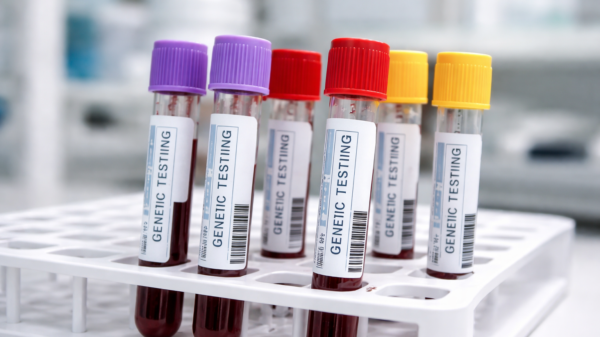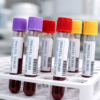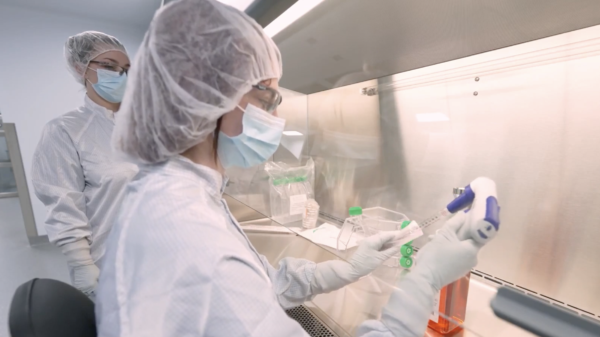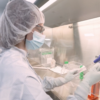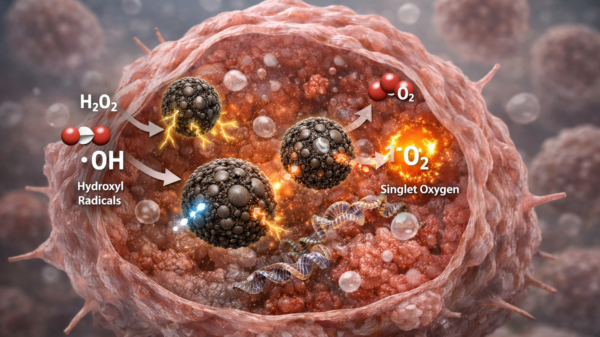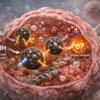Two South Korean universities have developed an inhalable therapeutic delivery system to help treat lung cancer.
Researchers from Kyungpook National University in South Korea and POSTECH announced on Thursday that they had developed the potential treatment which uses mucoadhesive protein nanoparticles as a delivery system inspired by the adhensive properties of marine mussels.
Lung cancer ranks as one of the deadliest cancers worldwide. Non-small cell lung cancer (NSCLC) constitutes 85 per cent of all lung cancer cases. Additionally, it presents significant treatment challenges due to difficulties in early detection. Physicians primarily administer current anticancer treatments intravenously, which affects both malignant and healthy tissues and often causes severe adverse effects.
Inhalable therapeutics have emerged as a promising alternative, allowing localized drug delivery directly to the lungs. However, the lung’s mucosal barriers and immune cells have significantly hindered the efficacy of this approach. Researchers have addressed this challenge through collaborative efforts, developing a mucoadhesive protein nanoparticle specifically designed for lung cancer treatment.
The approach uses the remarkable adhesive properties of marine mussel proteins, known for their underwater adhesion. Researchers drew inspiration from the oxidation-reduction mechanisms of foot protein type 6 (fp-6) and engineered foot protein type 1 (fp-1) by integrating cysteine. This innovation created a biomaterial with enhanced adhesive strength and precise drug delivery capabilities tailored to the effected microenvironment.
These nanoparticles selectively release their payload in targeted areas while inhibiting release in healthy tissues. This effectively minimizes adverse effects.
“The findings from our study have the potential to substantially enhance both the precision and efficacy of lung cancer treatments, while significantly improving patients’ quality of life,” said Professor Hung Joon Cha.
Read more: Breath Diagnostics onboards new president and closes critical financing
Read more: Breath Diagnostics pioneers novel lung cancer breath test
Advancement could improve lung cancer patient treatment access
The biocompatibility, biodegradability, and immunocompatibility of marine mussel proteins ensure superior biological safety and extend the retention of anticancer drugs, amplifying their therapeutic impact. In animal models of lung cancer, the research team’s nanoparticles, loaded with anticancer drugs, effectively inhibited cancer cell metastasis and invasion after being delivered to the lungs via a nebulizer and adhering to the mucosa.
This advancement could improve patient access to lung cancer treatment by enabling inhalation-based drug administration that patients can perform at home. Additionally, this approach may enhance patients’ quality of life by reducing the need for frequent hospital visits.
This shift toward patient-centered treatment aligns with developments in care that prioritize early detection.
Advances in diagnostic technologies are crucial for identifying lung cancer at earlier, more treatable stages. Companies like Kentucky-based Breath Diagnostics are leading the way in transforming how lung cancer is detected, complementing therapeutic innovations and further improving outcomes for patients.
Breath Diagnostics is pioneering advancements in lung cancer diagnosis with its innovative One Breath technology. This non-invasive diagnostic tool analyzes volatile organic compounds (VOCs) in a single exhaled breath. By leveraging advanced gas chromatography and mass spectrometry techniques, One Breath identifies unique biomarkers associated with lung cancer, allowing early detection and improved patient outcomes.
Another key player in lung cancer treatment is the global pharma-giant, AstraZeneca (NASDAQ: AZN). Their flagship drug, Tagrisso (osimertinib), targets specific genetic mutations in non-small cell lung cancer (NSCLC), such as EGFR mutations.
.







